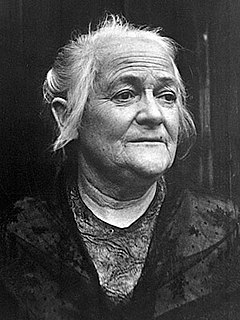A Quote by Jim Stanford
This relationship is the foundation for the argument, made by some trade unionists and labour advocates, that high wages can actually be "good for business". The precedent set by Henry Ford in 1914, who offered workers $5.00 per day (a very high wage at the time) so they could afford to buy the same cars they made, is often invoked.
Related Quotes
This kind of inequality - a level that we haven’t seen since the Great Depression - hurts us all. When middle-class families can no longer afford to buy the goods and services that businesses are selling...it drags down the entire economy from top to bottom. America was built on the idea of broad-based prosperity... That’s why a CEO like Henry Ford made it his mission to pay his workers enough so that they could buy the cars he made. It’s also why a recent study showed that countries with less inequality tend to have stronger and steadier economic growth over the long run.
Henry Ford made a lot of money making cars at one time, but that was a small advantage to him compared to the benefit to millions of people who for the first time in their lives were emancipated from common public carriers and could live where they wanted, move at the hours they wanted, to the places they wanted. Ford collected a billion bucks, but that was peanuts compared to the benefits.
What made women's labour particularly attractive to the capitalists was not only its lower price but also the greater submissiveness of women. The capitalists speculate on the two following factors: the female worker must be paid as poorly as possible and the competition of female labour must be employed to lower the wages of male workers as much as possible. In the same manner the capitalists use child labour to depress women's wages and the work of machines to depress all human labour.
Historical fact: People stopped being people in 1913. That was the year Henry Ford put his cars on rollers and made his workers adopt the speed of the assembly line. At first, workers rebelled. They quit in droves, unable to accustom their bodies to the new pace of the age. Since then, however, the adaptation has been passed down: we've all inherited it to some degree, so that we plug right into joy-sticks and remotes, to repetitive motions of a hundred kinds.
My first workout starts at 9:00 a.m. every morning. I'm in the gym from 9:00 a.m. to 11:00 a.m. We do strength conditioning, stretching, pretty intense workouts in the morning. We go back in the gym at 1:00 p.m. and train until 5:00 p.m. It's all routines, repetition, doing the same skills over and over again, trying to polish and perfect everything. I head home, eat dinner, spend some time with my wife and start over the next day. I train about six days per week.
Henry Ford has several times sneered at unproductive stockholders.... Well, now. Let's see. Who made Henry Ford's own automobile company possible? The stockholders who originally advanced money to him. Who makes it possible for you and me to be carried to and from business by train or street car? Stockholders.... Who made our vast telephone and telegraph service possible? Stockholders.... Were stockholders all over the country to withdraw their capital from the enterprises in which they are invested, there would be a panic ... on a scale never before known.
I’d say that Berkshire Hathaway’s system is adapting to the nature of the investment problem as it really is. We’ve really made the money out of high quality businesses. In some cases, we bought the whole business. And in some cases, we just bought a big block of stock. But when you analyze what happened, the big money’s been made in the high quality businesses. And most of the other people who’ve made a lot of money have done so in high quality businesses.
The evidence is inarguable that Australia is becoming too expensive and too uncompetitive to do export-oriented business. Africans want to work, and its workers are willing to work for less than $2 per day. Such statistics make me worry for this country's future. We are becoming a high-cost and high-risk nation for investment.





































